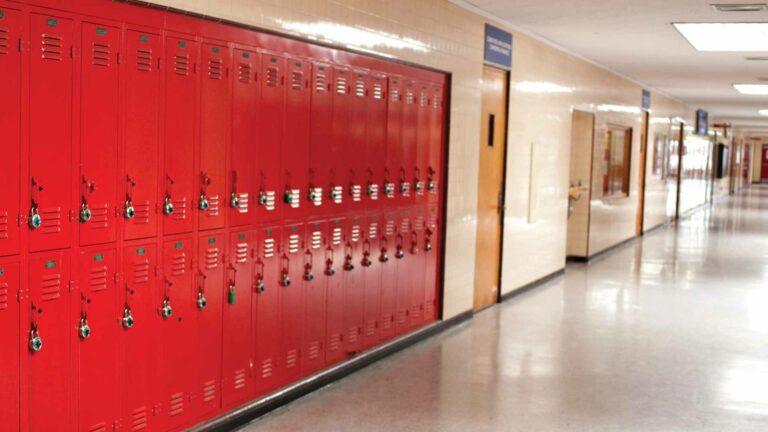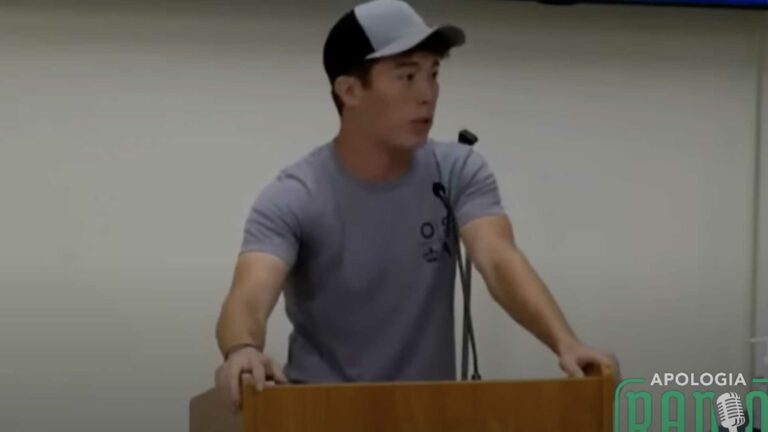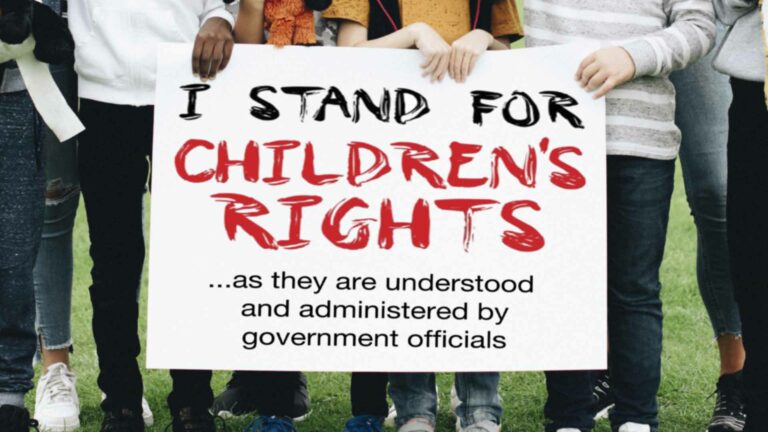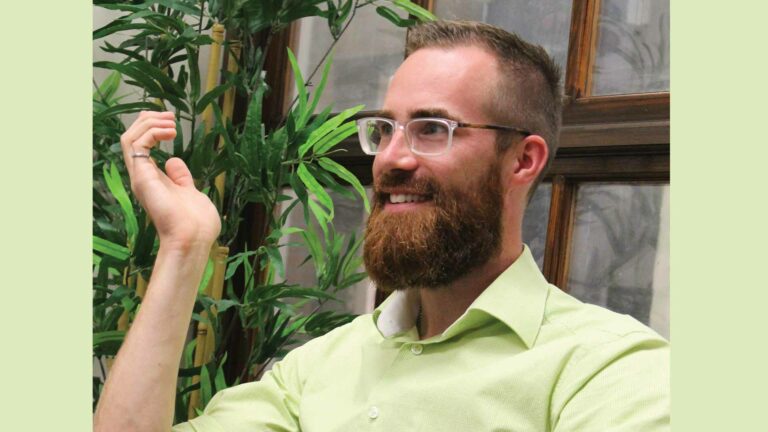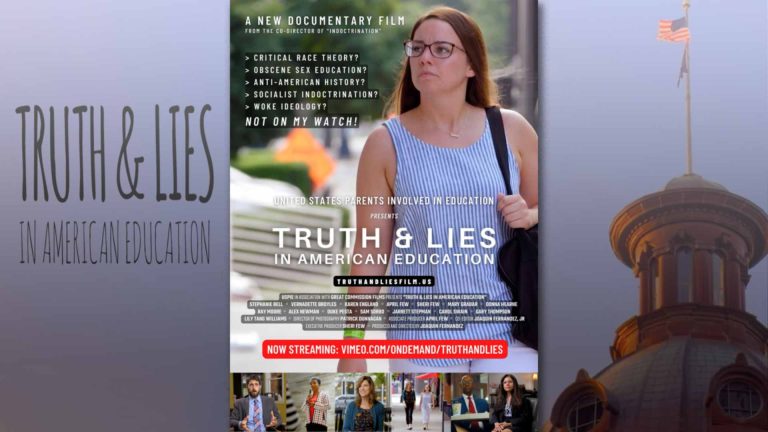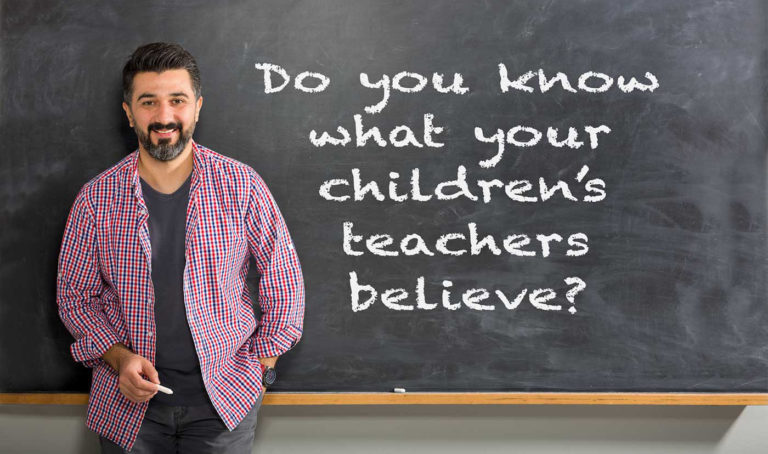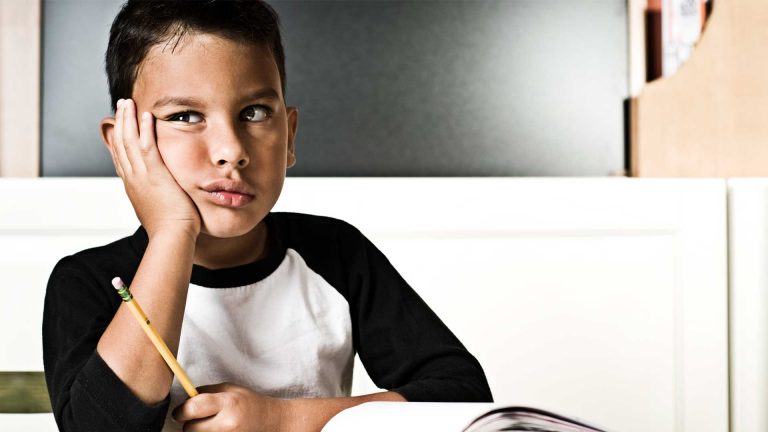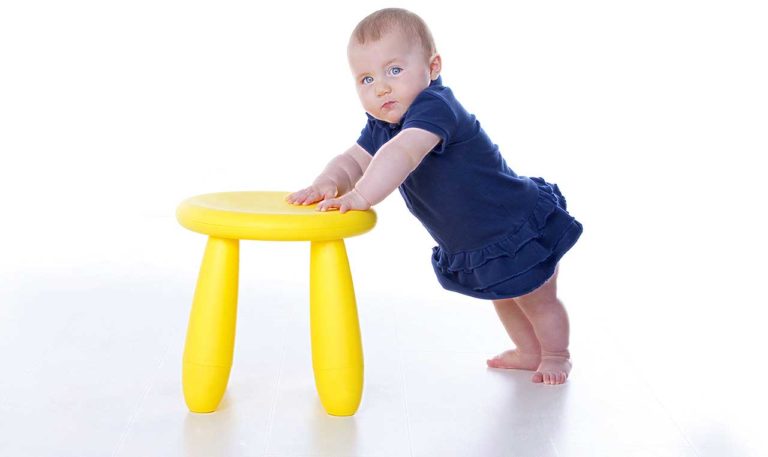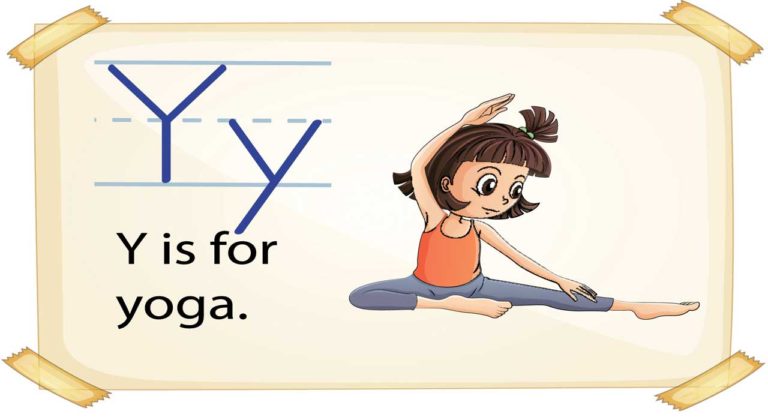Educating Royalty
We must teach our children to be Kingdom heirs—not just laborers in the marketplace
****
“Who are you?” a university student once asked me.
Odd question, I thought. I’d handled countless student questions, but this one caught me unprepared.
“Uh . . . I’m a professor,” I answered weakly.
“No!” he shot back. “I don’t mean what do you do, but who are you?”
His question unsettled me. Like most North Americans, I’d been carefully, though not intentionally, catechized since a lad at my parents’ side that the first and most important question we ask adults at first meeting (after getting their name) is, “What do you do?”
I’d learned that catechism lesson well, repeating it literally hundreds of times in all kinds of social settings over the years. But that catechism had left me quite unprepared to answer this more fundamental question about my personal identity separate from my place in the market.
That grieved me because, as a Christian, I had been better versed in the catechism of secular pragmatism than in Lord’s Days 12 and 13 or the Scriptures. And I knew I wasn’t the only one.
The answer that changes everything
The Spirit himself bears witness with our spirit that we are children of God, and if children, then heirs—heirs of God and fellow heirs with Christ.... – Romans 8:16-17a
As I have reflected on that encounter over the years, I’ve realized that the biblical and covenantal answer to the question, “Who are you?” is a glorious one that stands in stark contrast to the secular myth that our employment or “career” defines us. Of course, our work and callings as Christians in the marketplace are important. Providing for our families is a great privilege and responsibility. But the priority of work in both our lives and the education of our children is almost certainly misplaced and overemphasized today in Reformed circles.
Our Calvinistic work ethic and sense of vocation – serving the Lord in all things – are a glorious heritage, but in our 21st century context, they have become largely indistinguishable from the middle class idolatry common among our unbelieving neighbors (i.e., having “another object in which men place their trust” ).
In fact, over 30+ years of university teaching, evenly divided between secular universities and Christian colleges, I can testify that the one question all parents – Christian and non-Christian alike – ask about higher education is, “What kind of job can my kid get when he/she graduates?”
Intended or not, that question reveals deep worldview priorities. And such a question is certainly not the fruit of careful, prayerful parental reflection on what it means to educate covenant children as heirs of Christ who will seek first the kingdom.
By contrast, the Scriptures never identify God’s covenant children as people with jobs who happen to hold to a particular religious tradition. Instead, the Bible repeatedly calls us heirs of a kingdom, the adopted sons and daughters of the King of the universe. We are not just Christians who happen to have various jobs or work to do. We are royalty (Rom. 8:14-17, Eph. 1:3-6, I Pet. 2:9).
We will reign over all creatures with Christ eternally (Heid. Cat., Q. 32). We are the adopted children of God and fellow heirs with Jesus, with all the privileges of the sons of God (Luke 2:11, Acts 10:36, I Tim. 6:15, Rev. 19:16; Heid. Cat., Q. 34). We are princes and princesses of the King of kings! We are royal heirs!
And that answer to the question, “Who are you?” changes everything!
Like young Prince George, the baby heir to the throne of England and the United Kingdom, a day mustn’t pass that we wonder who we are, why we are being educated, and what we are being prepared to be and to do. We are heirs to a throne and a Kingdom far greater and more glorious than the one in England. The House of Windsor pales in comparison to Jesus’s realm and our divine inheritance! How much more, then, should we, who are heirs of the King of kings and Lord of lords, prepare ourselves and our children to be thoroughly and faithfully educated in everything it means to be a son and daughter of the Creator, Redeemer, and Lord of the Universe. Thoroughly and faithfully educated in everything it means to be royalty.
What does that look like?
If we understand we are educating royalty, how should that impact how we teach, and what we expect?
Then we will understand there is no time for the wicked nonsense about “sowing wild oats” or setting a low bar of expectations for our children. That is the rebellious spirit of prodigals who forget who they (and their children) really are. Those who are in line to take their places in Christ’s kingdom as princes and princesses must expect more of themselves and of their children. “To whom much is given, much is required” (Luke 12:48). Because we are royalty in Christ, God has king-sized expectations and blessings in store for us and our children – if we have eyes to see and ears to hear.
The entire book of Proverbs is Solomon’s instruction to his royal heirs to
know wisdom and instruction, to understand words of insight, to receive instruction in wise dealing, in righteousness, justice, and equity; to give prudence to the simple, knowledge and discretion to the youth – let the wise hear and increase in learning, and the one who understands obtain guidance, to understand a proverb and a saying, the words of the wise and their riddles (Prov. 1:2-6).
Such an education must provide much more than an awareness of fragmented facts or specialized work skills for a place in the job market. Again, that’s not to say that facts and skills are not important. Nor is it to say that we should suddenly trade pragmatic, nose-to-the-grindstone sweat of our brows for pious sounding spiritual platitudes.
The issues are
where does the education of Christ’s royal heirs fit in our list of priorities and
what should that education look like.
Priorities: We are royalty. So start acting like it.
Have you forgotten the exhortation that addresses you as sons? "My son, do not regard lightly the instruction of the Lord, nor be weary when corrected by him. For the Lord instructs the one he loves, and corrects every son whom he receives." It is for instruction that you have to endure. God is treating you as sons. – Hebrews 12:5-7
Those who are fellow heirs in Christ know that His regal ways are not the power-grabbing, lording-it-over-others, self-seeking ways of the ungodly. Far from it. Christ ascended to His Father’s throne only after sacrificing everything for His people and His creation. He gave himself away. His royal way is the way of selfless love and sacrifice. He died that we might die to sin and death. He lives that we might live in glory forever. Sacrificial service for the sake of the kingdom is the mark of true kingship, true royalty. It characterizes our Lord Christ. And it must characterize our Lord’s true heirs in their lives and in their education.
As Christ’s royal heirs, we dare not be content to prepare ourselves or our children merely to be cogs in the economic machinery of our secular consumer culture. Even the ancients understood that slaves are only trained to perform tasks. They have no rights of inheritance, no deeper identity. A slave’s identity is his work.
But free citizens and royalty, who will dedicate themselves to the advance of the kingdom, must be educated deeply for the day when their royal leadership and service is expected. Similarly, we are called to a higher purpose and bear greater responsibility for how we live and prepare our children for their royal callings.
Unfortunately, we have, as the author of Hebrews suggests, forgotten the divine exhortation to educate our children in the nurture and instruction of the Lord (Eph. 6:4, Heb. 12:5ff). We have forgotten in part because we have forgotten who we are.
A Royal education: Recovering the Lost Tools of Learning
This memory lapse is most evident in how we educate our children today. Education, even that which purports to be Christian, is now often devoted primarily to the goal of producing good little workers for the secular labor force, efficient widgets for our economy’s production line, and little more.
That falls far short of the biblical expectation that Christian children be saturated in the instruction of the Lord and grow up knowing what it means to be royal heirs of Christ the King. An education bearing the name of the King ought, at the least, to offer His royal heirs...
1. A comprehensive and integrative understanding of God’s world and of how all things cohere in the Lord Jesus Christ (Eph. 1:4-11).
Such an education will give children the “big picture” of how all things, all spheres of creation, are interrelated in the glory of their Creator.
The university itself was a Christian invention in the Middle Ages (the earliest established between A.D. 1100 and 1200), designed to give students an integrated Christian vision and foundation for all future learning. That was the original purpose of the classical liberal arts (meaning, the arts of a free citizen). For almost a millennium, Christian universities taught the classical liberal arts or the so-called Trivium and Quadrivium:
The Trivium, or the Three Ways, stressed the good structure of language (Grammar), the way to discern truth (Logic), and how to express truth beautifully (Rhetoric)—all to encourage a student’s life-long love of goodness, truth, and beauty in words and language, as typified by the Word Himself in John 1:1-14.
The Quadrivium, or the Four Ways, encouraged a life-long love of goodness, truth, and beauty in the use of numbers (Arithmetic), numbers in space (Geometry), numbers in time (Music or Harmony), and numbers in space and time (Astronomy), revealing the unity and diversity of creation and of our Triune Creator Himself (Deut. 6:4, “Hear, O Israel: The LORD our God, the LORD is one,” and Matt. 28:19, “Go therefore and make disciples of all nations, baptizing them in the name of the Father and of the Son and of the Holy Spirit”).
Together, the Trivium and Quadrivium, the original seven liberal arts, offered students essential insights into the harmony and wholeness of God’s diverse world and into the interrelated truth, goodness and beauty of its Triune Creator. They didn’t give students just the facts or skills for a job, but the tools of lifelong learning from a Christian perspective.
Unfortunately, today’s arbitrarily selected smorgasbord of academic subjects and randomly structured university curricula, following the modern analytic, scientific tradition, tend to do the opposite: they offer fragmented bits of information with no principle of coherence or relationship. But in God’s economy, the whole is always more than the sum of its parts. An education that does not teach us how to see the wholeness of God’s creation, and to equip us to understand how all things cohere in Christ, inevitably misses the big picture about creation and creation’s God. It is a partial, incomplete, distorted education.
Curiously, specialization at the undergraduate level was virtually unknown in North America prior to the late 19th century. University students did not “major” in a narrow academic disciplines or vocational specializations prior to 1879. They couldn’t. “Majors” simply didn’t exist before then. Instead, all undergraduates received a classical, integrated liberal arts foundation. The universities gave them essential tools for learning that applied to all their various callings as sons and daughters, spouses, parents, neighbors, citizens, providers, voters, buyers and sellers in the marketplace, and parishioners. Their work skills and the job training needed to provide for their families were developed outside the classroom in on-site training or apprenticeships done in the context where the work was actually being done. Augustine, Luther, Calvin, Kuyper, C.S. Lewis – all the greatest leaders in our Christian tradition – were so classically educated in the traditional, integrative liberal arts of the Trivium and Quadrivium and practically trained.
But pragmatists of the late 19th and early 20th century sold their Christian academic birthright for a mess of modernist career pottage. They turned schools into egalitarian job training camps for the workers of the world and abandoned the Christian pursuit of wisdom and knowledge in the Lord. The schools dumbed down and the church has grown steadily weaker ever since.
Reversing that trend will require that the King’s royal heirs expect...
2. Truly godly and wise teacher-mentors (Luke 6:40).
According to Jesus, the teacher – not the curriculum, not the lesson plan, not the technology, not the facilities, not the accreditation, not the tuition rate – is the single most important factor in a child’s education. “A student, when mature, will be like his teacher,” Jesus said. All the other bells and whistles may be nice (though they can often be more of a distraction than a help), but the teacher is key.
Yet, in my experience, Christian parents often know more about a school’s university admission rates, or a college’s career placement rates, or tuition rates, or financial aid plans, or sports programs than they do about the character and spiritual health of the men and women who will actually be shaping the minds and lives of their children in and out of the classroom. Sadly, many Christian school administrators and boards aren’t much better, giving higher priority to paper credentials and standardized test scores and bricks and mortar than to the character and spiritual integrity of their teachers. Of course, academic expertise and standardized testing have their place. But parents, administrators and school promotional literature often stress most what actually counts least from a Kingdom perspective. And such misguided emphases have the potential to catechize generations of parents and children in what is least in the Kingdom.
The teacher is so crucial, as Jesus says, because all education is fundamentally personal. That’s because truth itself is personal. Truth is a person. Jesus said, “I am the way, the truth and the life” (John 14:6). Truth is not some collection of brute facts or scientifically verifiable propositions. It is a living person. Teachers either faithfully represent or embody that Truth before their students or they don’t. Parents or educators who misunderstand this crucial biblical principle put their children and students at grave risk of misunderstanding the Truth and being catechized in lies and ungodliness. No matter how much parents think their child can be a “good witness” in a secular education environment, that child is not the teacher, but the one being taught. And no matter how mature we imagine our children to be (often overestimating), their “cement is still wet.” They are still students seeking to be taught and led into maturity, readily influenced by others older and more experienced. The question is, who will teach them and lead them into what kind of maturity?
Moreover, those who think that new distance learning technologies will provide a quality education without putting their children at risk under ungodly teachers make a similar mistake. Learning godly knowledge and wisdom is not a data download. A student will be shaped by his or her teacher, no matter who that teacher is, no matter how the instruction is delivered.
Finally, the education of the King’s royal heirs ought also to include...
3. The shaping of our desires for the things of the Kingdom
Therefore I tell you, do not be anxious about your life, what you will eat or what you will drink, nor about your body, what you will put on. Is not life more than food, and the body more than clothing? ... For the Gentiles seek after all these things, and your heavenly Father knows that you need them all. But seek first the kingdom of God and his righteousness, and all these things will be added to you. – Matthew 6:25, 32-33
Jesus did not say, “Seek first vocational-technical training, and all that kingdom of God and righteousness stuff will be added later.” Yet to hear parents of university-bound students talk today about their educational goals for their children, you’d think he had. The dominant secular vocational paradigm for higher education has influenced us more on these issues than our Christian schools, our catechism classes, and even our churches. For that, we must repent. Our heavenly Father knows everything we need to live and to thrive, and He will provide them for us by His perfect means according to His perfect timing. He tells us explicitly not to stress over the little stuff. Grasping at college majors and career preparation will not add one penny to our bank accounts, put one more meal on the table, or add one more second to our lives that He has not already ordained. So stop majoring in the minors. Instead, major in God’s priorities: Christ’s kingdom and His righteousness.
What our schools and universities must encourage in our covenant children is a deeply held heart-desire for the things of God and of His Kingdom.
Conclusion
As Calvinists who take the sovereignty of God – the crown rights of Christ – seriously, we cannot, must not, train our children merely to be good little widgets in the secular marketplace who also happen to go to church each Lord’s Day. We vowed to raise them for much greater things at their baptisms.
So, “Who are you?”
You are the royal heirs of the King of kings; start acting like it.
Your children are royalty; start treating them like it.
Your children are inheriting a Kingdom; so start educating them for it.
A Chinese translation of this article can be found here....








